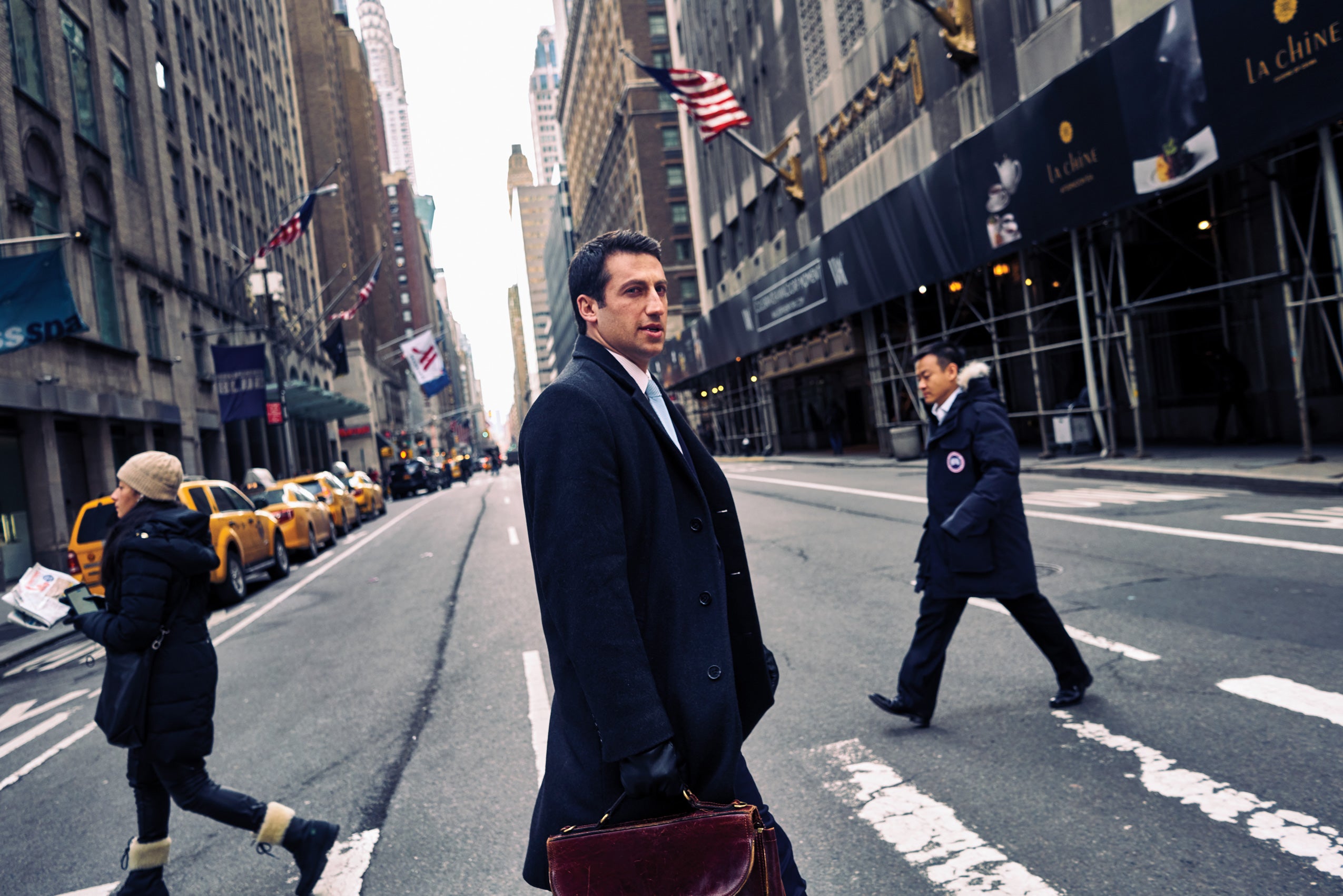When Thabo Sefolosha of the NBA’s Atlanta Hawks was arrested in New York for resisting arrest in 2015, he hired Alex Spiro ’08 as his defense attorney.
The Sacramento Kings’ Matt Barnes retained him after an alleged assault at a nightclub last December, and so did ex-Knicks star Charles Oakley following an altercation at Madison Square Garden in February.
Spiro has emerged in short order as the go-to lawyer for professional basketball players who get in trouble with the law in New York. It is just one slice of Spiro’s practice summarized by sports and culture website The Ringer as “the rich, the famous, and the restless.”
“He’s earned the reputation as the go-to guy honestly because he’s been quite effective in his prior representations,” said Clinical Professor of Law Ronald Sullivan ‘94, who has worked with him on several criminal defense cases. “If I were a professional athlete, Alex would be in my Rolodex in case I ever got in trouble.”
Spiro, who grew up in the Boston area, studied psychology at Tufts and worked with teenage Asperger’s patients at McLean Hospital before attending HLS. After graduation, he became a prosecutor in the Manhattan district attorney’s office, where he stayed for four and a half years.
In 2013, he jumped to a New York criminal defense firm run by Benjamin Brafman, known for his celebrity clientele. Spiro quickly developed his own list of cases, which generated frequent mentions in the New York Post’s Page Six gossip column.
Spiro said representing NBA players is still a “very small percentage” of his caseload. Other notable clients have included rap star Bobby Shmurda, who accepted a plea deal for weapons possession, and the late Aaron Hernandez, former New England Patriots tight end, who was acquitted in April of a Boston double murder after being convicted of a separate murder in 2015.
“But it is true that I’ve had a series of them and been somewhat integrated into the NBA through those cases,” Spiro said. “In any of those worlds—if you represent several NFL players, which I have, or piano players, which I haven’t—once you’ve gotten into an insulated group, if you do a good job and treat people the right way, it’s more likely that group is going to trust you to come back.”
Spiro has enormous confidence and personality, said his classmate and friend Yared Alula ’08, who worked for the NBA players’ union and is now senior counsel for the PGA professional golf tour. “Athletes would obviously find him competent, but also somebody they would like as well.”
Since 2012, at Sullivan’s invitation, Spiro has shared his expertise with HLS students through the Trial Advocacy Workshop. He is also chair of the legal advisory council for the Fair Punishment Project, an HLS initiative that seeks to highlight problems in the criminal justice system that result in excessive punishments.
Sullivan attributes Spiro’s success to “native smarts and honed trial skills” and an ability to navigate the unique challenges of high-profile cases. “The glare of the spotlight makes every aspect of these sorts of cases more difficult,” said Sullivan, who has worked with Spiro on both the Shmurda and Hernandez cases.
Sullivan singled out Spiro’s work in defending Sefolosha, who was among the bystanders arrested by New York City police outside a nightclub, where fellow NBA player Chris Copeland was stabbed in the stomach. Police officers knocked Sefolosha to the curb and broke his leg in the process before charging him with resisting arrest.
Sefolosha rejected a plea offer and insisted on going to trial, where Spiro argued the police improperly targeted his client because he was African-American. Sefolosha was acquitted of all charges and subsequently filed a civil suit against the NYPD.
“Many lawyers would tend to skirt the issue or not deal with it directly, but Alex is unafraid to take issues head on when they impact his clients,” Sullivan said.
